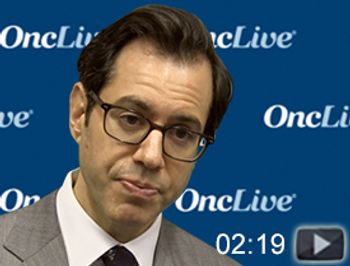
Matthew Galsky, MD, professor of medicine, hematology, and medical oncology, Mount Sinai Hospital, discusses the rationale for the IMvigor130 study in metastatic bladder cancer.

Your AI-Trained Oncology Knowledge Connection!


Matthew Galsky, MD, professor of medicine, hematology, and medical oncology, Mount Sinai Hospital, discusses the rationale for the IMvigor130 study in metastatic bladder cancer.
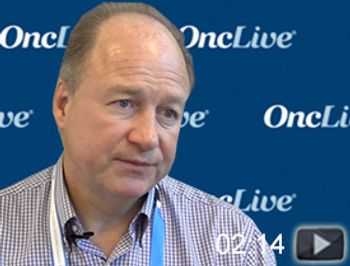
Paul Richardson, MD, clinical program leader, director of Clinical Research, Jerome Lipper Multiple Myeloma Center, Dana-Farber Cancer Institute, RJ Corman Professor of Medicine, Harvard Medical School, discusses the results of the OPTIMISMM trial in patients with multiple myeloma.
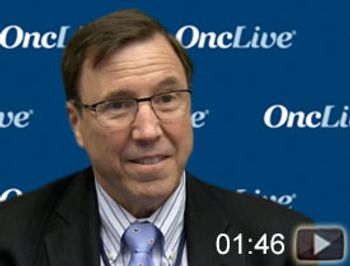
Andrew L. Pecora, MD, president of the Physician Services Division and chief innovation officer at Hackensack Meridian Health, discusses the role of stem cell transplant in patients with multiple myeloma.

Paolo A. Ascierto, MD, director of the Unit of Melanoma, Cancer Immunotherapy and Innovative Therapy at the National Tumor Institute Fondazione G. Pascale in Naples, discusses the COLUMBUS trial in melanoma.
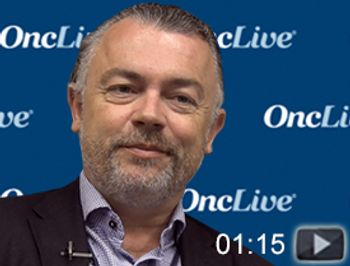
Hans-Christian Kolberg, MD, head, Department of Obstetrics and Gynecology, Breast Cancer Center, and Gynecologic Cancer Center at Marienhospital Bottrop, Klinik für Gynäkologie und Geburtshilfe, Bottrop, Germany, discusses the central pathology review of the trastuzumab (Herceptin) biosimilar ABP 980.

Brian I. Rini, MD, professor of medicine, Cleveland Clinic, discusses atezolizumab (Tecentriq) plus bevacizumab (Avastin) in renal cell carcinoma.
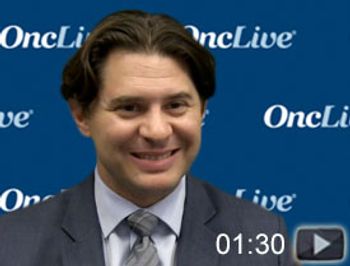
Matthew R. Zibelman, MD, assistant professor, Department of Hematology/Oncology, Fox Chase Cancer Center, advisory committee of the Association of Community Cancer Centers, discusses the management of immune-related adverse events (irAEs).
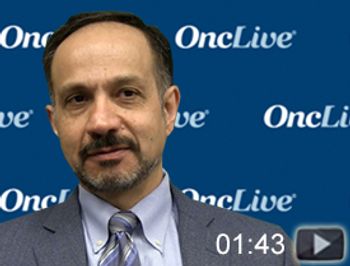
Hossein Borghaei, DO, MS, chief, Division of Thoracic Medical Oncology, director, Lung Cancer Risk Assessment, associate professor, Department of Hematology/Oncology, Fox Chase Cancer Center, discusses the results of the CheckMate-227 trial in non–small cell lung cancer.

Charles G. Drake, MD, PhD, director of Genitourinary Oncology, NewYork-Presbyterian/Columbia University Medical Center and co-director of Columbia’s Cancer Immunotherapy Programs, discusses the CARMENA trial in metastatic renal cell carcinoma (mRCC).
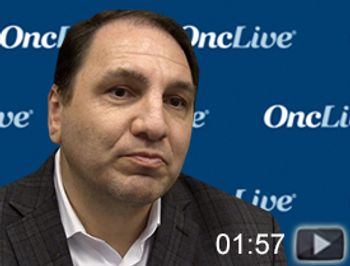
Ali McBride, PharmD, MS, BCOP, Clinical Coordinator of Hematology/Oncology, The University of Arizona Cancer Center, and President-Elect of the Association of Community Cancer Centers.

Noa Biran, MD, physician, Multiple Myeloma Division, John Theurer Cancer Center, discusses patient-reported outcomes following autologous stem cell transplantation in multiple myeloma.
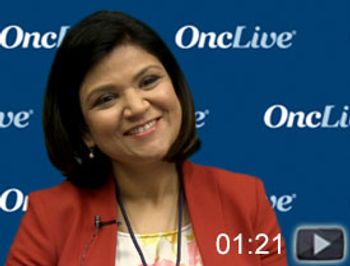
Shilpa Gupta, MD, assistant professor of medicine, Hematology/Oncology and Transplantation Division, University of Minnesota, discusses the phase Ib/II studies of pembrolizumab with bevacizumab for the treatment of patients with metastatic renal cell carcinoma.

Krishnansu Tewari, MD, associate professor, Division of Gynecologic Oncology, University of California, Irvine, discusses the GOG 3016/ENGOT-cx9 trial in patients with recurrent or metastatic cervical cancer.
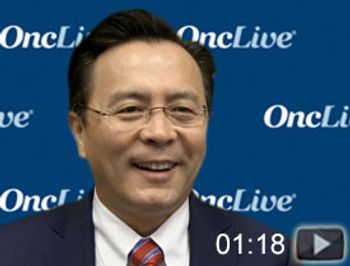
Michael Wang, MD, professor in the Department of Lymphoma and Myeloma at The University of Texas MD Anderson Cancer Center, discusses the ZUMA-2 trial in patients with relapsed/refractory mantle cell lymphoma.
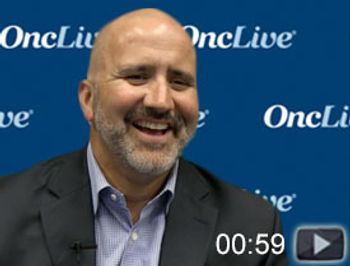
David O’Malley, MD, professor, Department of Obstetrics and Gynecology, The Ohio State University Comprehensive Cancer Center, discusses the safety and efficacy results of the FORWARD II phase Ib study in patients with ovarian cancer.
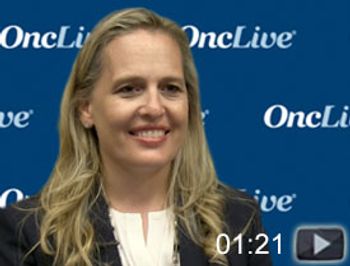
Rebecca Dent, MD, senior consultant, National Cancer Center, Singapore, discusses the results of the LOTUS trial in patients with triple-negative breast cancer.

Keith T. Flaherty, MD, director, Termeer Center for Targeted Therapy, Massachusetts General Hospital Cancer Center, professor of medicine, Harvard Medical School, discusses the COLUMBUS trial in patients with BRAF-mutant melanoma.
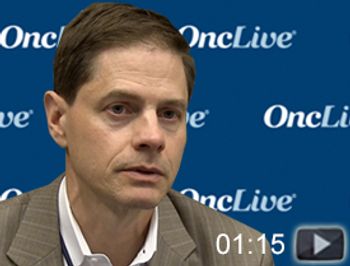
Brian I. Rini, MD, professor of medicine, Cleveland Clinic, discusses findings from the IMmotion151 trial in renal cell carcinoma.
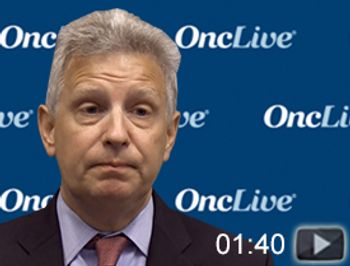
Ian Flinn, MD, director of the Blood Cancer Research Program, Sarah Cannon Research Institute, discusses Hu5F9-G4 (5F9) plus rituximab (Rituxan) in patients with non-Hodgkin lymphoma.
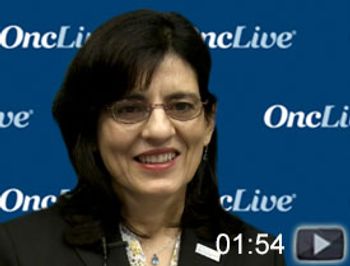
Susan Halabi, PhD, professor of biostatistics and bioinformatics, School of Medicine, Duke Cancer Institute, discusses overall survival between African-American and Caucasian men with metastatic castration-resistant prostate cancer.
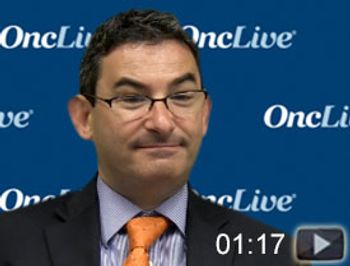
Jeremy Slade Abramson, MD, clinical director, Center for Lymphoma, Massachusetts General Hospital, discusses the updated results of the TRANSCEND study in patients with relapsed/refractory b-cell lymphomas.
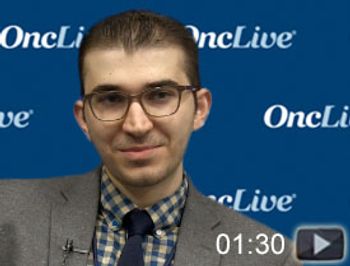
Talal Hilal, MB, BCh, assistant professor of medicine, Mayo Clinic, discusses the meta-analysis of rituximab maintenance for patients with mantle cell lymphoma.

Benjamin Maughan, MD, PharmD, instructor, Division of Medical Oncology, Huntsman Cancer Institute, discusses the combination of abiraterone acetate (Zytiga) and olaparib (Lynparza) in patients with metastatic castration-resistant prostate cancer.
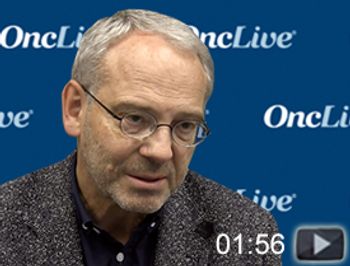
Thierry Conroy, MD, medical oncologist, director, Institut de Cancerologie de Lorraine, discusses the results of an adjuvant modified FOLFIRINOX regimen (mFOLFIRINOX) in patients with pancreatic cancer.
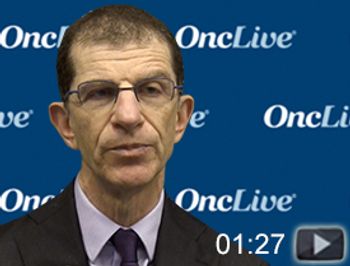
Danny Rischin, MD, director, Division of Cancer Medicine, head, Department of Medical Oncology, Peter MacCallum Cancer Centre, discusses cemiplimab in cutaneous squamous cell carcinoma.

The combination of atezolizumab, bevacizumab, carboplatin, and paclitaxel educed the risk of death by 22% compared with bevacizumab and chemotherapy in patients with advanced wild-type non-squamous non–small cell lung cancer.
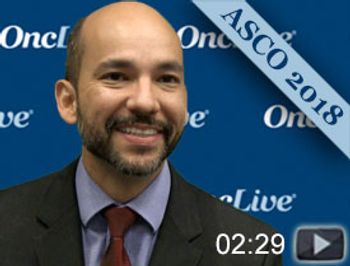
Gilberto Lopes, MD, a medical oncologist at the Sylvester Comprehensive Cancer Center, University of Miami Health System, discusses findings from the KEYNOTE-042 trial of frontline pembrolizumab (Keytruda) as a treatment for patients with squamous and nonsquamous non–small cell lung cancer in an interview with OncLive during the 2018 ASCO Annual Meeting.
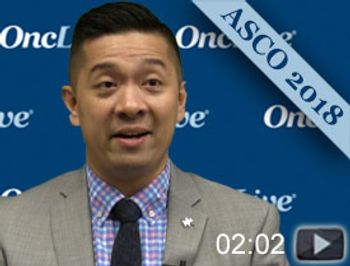
Alexander Drilon, MD, medical oncologist, clinical director, Early Drug Development Service, Memorial Sloan Kettering Cancer Center, discusses findings from the phase I LIBRETTO-001 study exploring the highly selective RET inhibitor LOXO-292 in patients with RET-altered solid tumors.

A combination of 2 over-the-counter medicines can moderately reduce the risk for high-grade dysplasia or esophageal cancer in patients with Barrett’s esophagus if taken for at least 7 years.

Combining the CD122-biased cytokine NKTR-214 with the PD-1 inhibitor nivolumab (Opdivo) showed promising antitumor activity, particularly in PD-L1–negative patients.